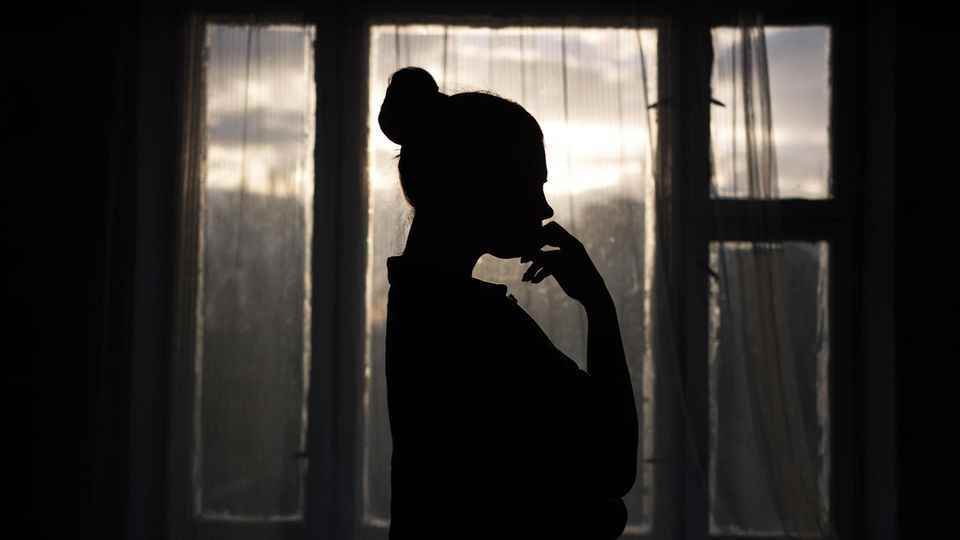“Ghosting” can have negative and lasting effects on our psyche, as studies show.
And suddenly he was gone. During my dating time I can remember only one time when I was the victim of “ghosting”. This refers to a phenomenon in which a person no longer reports or reacts from one moment to the next – just as if he had become a ghost. I’ve been writing with a very likeable man for a long time, we seemed to get along well and had made a date at a Christmas market. I hadn’t heard from him the night before, and the next day there was no response to my question as to where exactly we want to meet.
Hours passed and my emotions changed from cautious optimism (“The night has probably gotten longer and he’s still asleep”) to concern (“Something hasn’t happened to him?”) to bitter realization (“Oh you… He’s ghosting me yes!”). I then made an appointment with a friend, but kept checking my cell phone in between, still hoping – and therefore judging myself – that he might still get in touch. He didn’t. I wrote him an announcement that same evening, which was good for me and important.
Such an incident leaves traces
And yet I carried that experience around with me for a while. why did he do that? We hadn’t even met and yet I felt thrown away. To this day, I can’t really believe that he didn’t even respond. “Even if we may only know each other digitally, I’m still human,” I wrote to him at the time. Technology seems to make it easy for some people to ignore this fact.

But what does ghosting actually do to us? With those who turn into a ghost and with those who remain? Some studies have looked at this question and show how negatively ghosting affects the psyche – no matter which side you are on.
Anyone who is ghosted develops distrust
From more than 4,800 respondents, in a study over half (62 percent) know something of the term “ghosting,” with almost a third (29 percent) having experienced it themselves. The 18 to 29 year olds were particularly affected, of whom, according to the survey, almost half (42 percent) had already been ghosted at least once. This shows how widespread the phenomenon is, especially among younger people.
Those affected are confused, feel rejected, their self-esteem sinks
A study from 2020 dealt with the psychological consequences of ghosting on those affected, distinguishing between short-term and long-term effects. Especially shortly after being ghosted, those affected experienced confusion and felt an “overwhelming rejection,” which also took a toll on their self-esteem. Factors such as the lack of closure of the relationship and clarity contributed to this – those who are being ghosted do not know the reason for the communication stop and are trying to understand the situation.
Ghosting can lead to internalized rejection, self-blame, and low self-esteem.
In the long term, this experience can have a negative effect on the psyche, because ghosting can create a feeling of distrust that can even spill over into the next relationship. Totally understandable, because breaking off the last relationship finally came out of nowhere for the hosted person. So why shouldn’t the next person you start a relationship with (romantic or platonic) do the same? Such experiences lead to “internal rejection, self-blame, and low self-esteem,” Psychology Today summarizes.
What ghosting does to the ghosts
But why do people actually ghost? One small study from 2021 surveyed 76 students and received different answers to this question. Some participants had already ghosted another human being and admitted that they lacked the necessary communication skills to engage in an open and honest conversation with the person they no longer wanted to see. Others blamed their behavior on a lack of self-confidence and social anxiety. And still others wanted to avoid a possible development of romantic or sexual interest because they weren’t ready for it.
Some people see ghosting as a friendlier way of showing disinterest
In fact, ghosting also has another side, as the study shows: almost half of those surveyed who have already ghosted another person did so because they were breaking out of a “toxic”, “unpleasant” or “unhealthy” relationship wanted to. And some also rationalized their behavior: They saw ghosting as a friendlier way of letting someone know you weren’t interested, rather than hurting that person’s feelings in a conversation.
We must exorcise the spirits
At first glance, ghosting is a delightfully simple way for the person doing it to avoid conflict and uncomfortable conversations and situations. Especially when it is found difficult to take responsibility for one’s own feelings and actions, ghosting seems to be a convenient and quick alternative.
But ghosting leaves marks – on those who practice it and on those who suffer from it. So it’s time to cast out the evil spirits and treat ourselves with the respect we wish others to treat us.
Sources used: psychologytoday.com, mdpi.com, pewresearch.org, psycnet.apa.org
